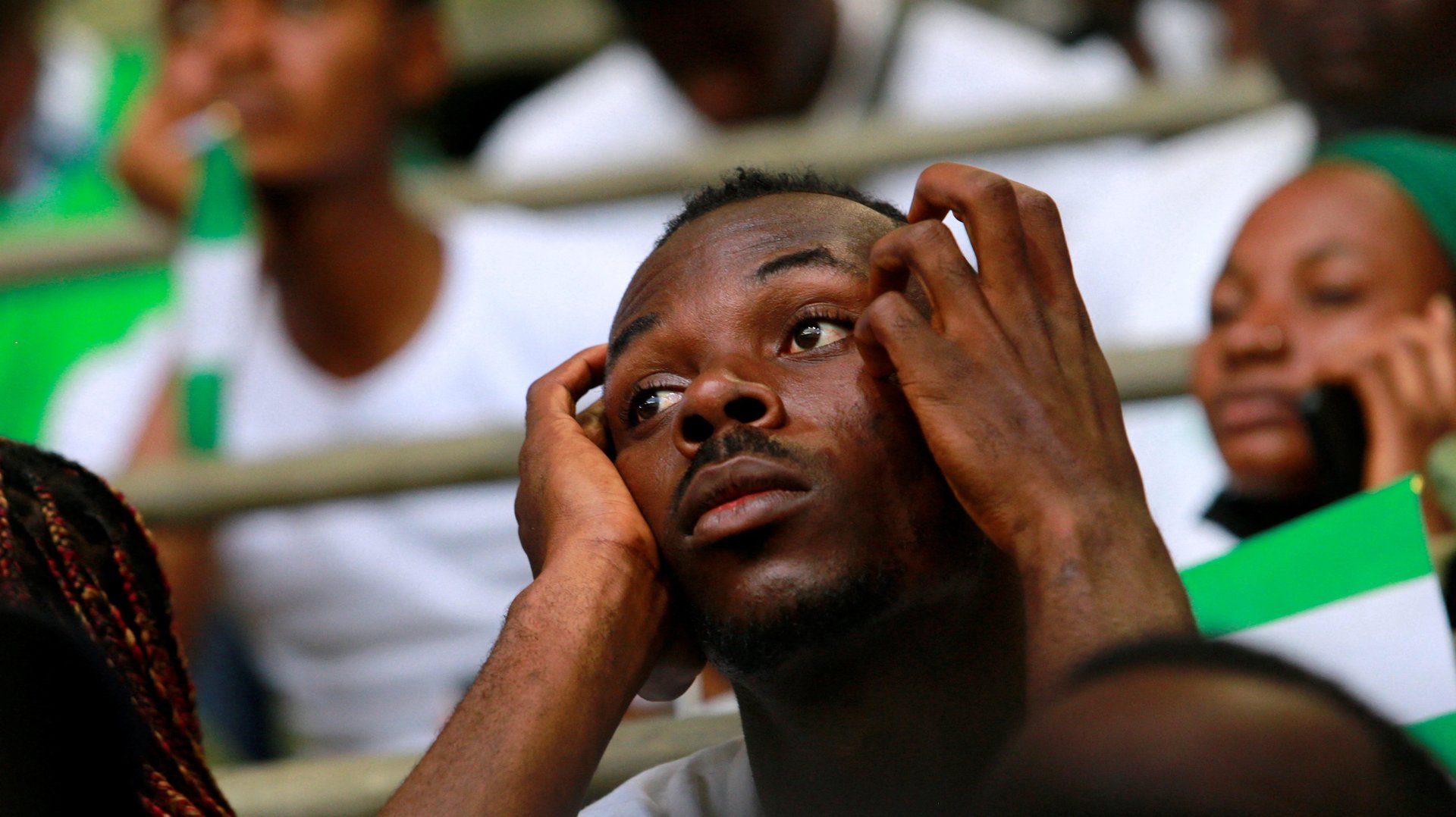Nigerian soccer fans’ rage could have financial consequences
An angry crowd invaded the pitch and vandalized facilities inside the Moshood Abiola national stadium in Abuja on Tuesday (Mar. 29), after Nigeria failed to beat Ghana in a qualifying game for the soccer World Cup in Qatar later this year, and won’t be competing in the tournament.


An angry crowd invaded the pitch and vandalized facilities inside the Moshood Abiola national stadium in Abuja on Tuesday (Mar. 29), after Nigeria failed to beat Ghana in a qualifying game for the soccer World Cup in Qatar later this year, and won’t be competing in the tournament.
The Abuja stadium was packed to the roof with 60,000 spectators, the overwhelming majority being Nigerians confident of victory in the match dubbed the “Jollof Derby” for the soft west African rivalry over whose jollof rice is best.
But it became heated and spicy in unsavory ways after 90 minutes.
Nigeria will lose access to millions of dollars
One of Africa’s dominant soccer teams, Nigeria missed only one World Cup between its first appearance in 1994 and 2018, when $400 million was shared between the 32 participating teams in Russia.
Nigeria doesn’t get a major share of that prize money because it typically leaves each World Cup at the second round, but what it does get can be invested in local sports development.
Qualifying for Qatar would have been Nigeria’s first time making it to four successive tournaments, a source of pride and an opportunity for more global exposure to the country’s soccer talent. Beyond soccer, traveling to global sporting events is an opportunity for some fans to extend business networks, even if Qatar has a cloud of worker rights abuses hanging over the upcoming event.
Fans disappointed by Nigeria’s relatively early exit from last month’s Africa Cup of Nations in Cameroon hoped the team would make up for it this week with a World Cup place. The team did not, and chaos ensued.
As the final whistle was blown, plastic bottles rained from the stands on the running tracks close to the field. The players were barely in their locker rooms when hundreds of spectators climbed down to begin vandalizing the canopy coverings for coaches and reserve players, wooden advertising panels, and goal nets.
Vandalism could discourage another Dangote investment
The ugly scenes ended what should have been a happy re-opening of Nigeria’s national stadium. Built in 2003, administrators allowed the stadium to fall into disrepair. For a decade, overgrown grass gave the field the look of a weed-ridden farmland.
Dangote, the company owned by Africa’s richest man, Aliko Dangote, intervened and rehabilitated the field with a new playing surface of modest quality. Two new electronic scoreboards were also installed.
Flares burned a portion of that renovated field on Tuesday. The scoreboards were spared, probably because they were too high to reach. It wasn’t a great advertisement to other investors who may be interested in helping build sports in Nigeria, perhaps with the exception of those building their own soccer clubs.
The embittered crowd did not care, raging against the machine in a way that may have lasting consequences.
An earlier version of this article said the national stadium in Abuja was built in 2006.
Sign up to the Quartz Africa Weekly Brief here for news and analysis on African business, tech, and innovation in your inbox.